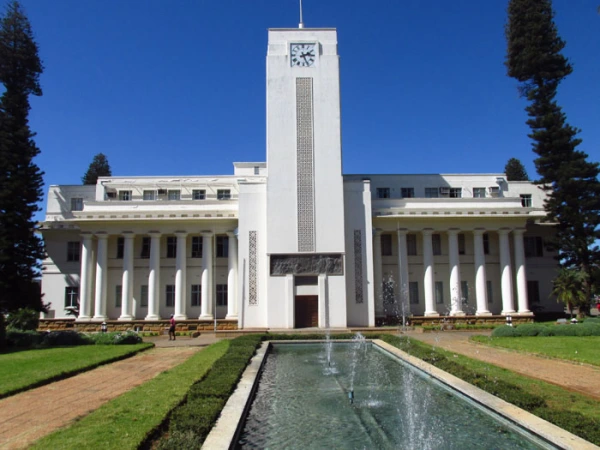The City of Bulawayo has unveiled its proposed 2025 budget set at US$309 million budget, which seeks to revitalise infrastructure and address the city’s worsening water crisis.
The budget, announced by the Chairman of the Finance and Development Committee, Councillor Mpumelelo Moyo focuses on necessary improvements in water infrastructure, roads, health, and social services against the backdrop of a city grappling with inflation and a protracted drought.
“The proposed budget for 2025 is set at US$309 million. The proposed capital budget is set at US$82 million constituting 26% of the total budget with the Revenue Budget set at US$227 million constituting
74%,” said Cllr Moyo.
The 2025 budget, themed “Consolidating Economic Transformation,” aligns with Zimbabwe’s National Development Strategy, which aims to steer the nation towards becoming an upper-middle-income society by 2030. For Bulawayo, this vision is underpinned by goals of sustainability, infrastructure renewal, and improved service delivery.
Among the key spending areas are water and sanitation, social services, housing, and road infrastructure.
Water infrastructure will receive particular attention, with the city battling drought and severely depleted dam levels.
“Council has set aside US$64 million under this program. US$19million will be spent on capital projects while US$45 million will be spent on recurrent expenditure,” said Cllr Moyo.
In September 2024, Bulawayo’s dam reservoirs were at just 28.58% capacity, down from 50.8% the previous year. Of the total water supply, only 101 million cubic meters are currently usable, a significant decrease from the previous year.
In response, the budget proposes a controversial water levy of US$1 for domestic properties and US$10 for non-domestic properties. This levy is intended to fund the rehabilitation of the city’s ageing water infrastructure.
Similarly, a road levy of US$1 for domestic and US$10 for non-domestic properties will be introduced to address the deteriorating road conditions.
“The 2025 budget proposes the suspension of free water while the needy and disadvantaged
will be identified and continue to be subsidised. Continued low rainfall patterns and dwindling water levels at Council’s supply dams have questioned the logic of offering free water during tight
water rationing and shedding,” said Cllr Moyo.
However, 62% of participants in the city’s budget consultations voted against the removal of free water, indicating strong opposition from the public.
Sixty two point five (62.5%) of the consultative meetings voted in favour of the roads levy and sixty five
(65%) of the consultative meetings voted in favour of the water levy.
Road rehabilitation is critical, with over 12 kilometers of the city’s road network already attended to this year. The poor state of roads has become a point of frustration for residents, as potholed streets and inadequate storm drains continue to affect traffic and safety.
The city has also allocated significant resources to improving social services. A total of US$102 million has been set aside for social programs, including education, health, and housing. The budget highlights ongoing projects such as the construction of new classroom blocks at Vulindlela Primary School and improvements to the city’s clinics.
Bulawayo operates 21 clinics and is expanding its capacity with plans to build two new clinics in Cowdray Park and Emganwini. Seven of these clinics now have pharmacies, thanks to support from the central government and international donors, helping to alleviate some of the city’s healthcare challenges.
On the housing front, the city plans to develop over 7 000 stands across various suburbs, with an emphasis on improving access to affordable housing. The growing demand for housing has been a persistent issue, particularly as the city’s population continues to rise.

